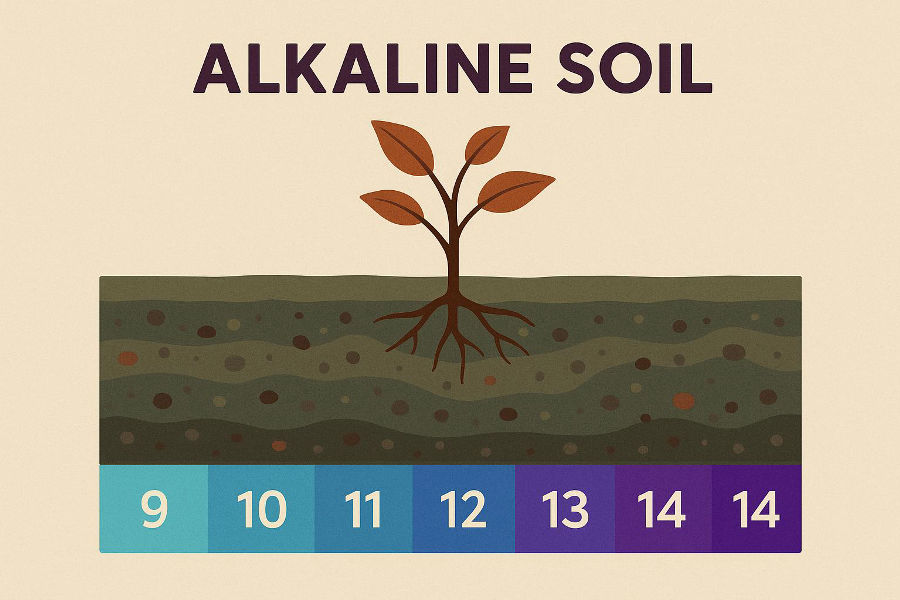Alkaline Soil: Causes, Effects, and Management
Alkaline soil has a high pH (above 7.5), which affects nutrient availability and plant growth. It is commonly found in arid and semi-arid regions where low rainfall leads to the accumulation of salts and calcium carbonate in the soil.
Causes of Alkaline Soil
-
Low Rainfall & High Evaporation – Leads to salt buildup.
-
Excessive Use of Sodium-Rich Irrigation Water – Increases soil alkalinity.
-
Calcium Carbonate Accumulation – Makes the soil highly alkaline and nutrient-deficient.
-
Overuse of Certain Fertilizers – Improper fertilization can increase pH over time.
Effects on Crops
-
Nutrient Deficiencies – Reduces availability of iron, zinc, phosphorus, and manganese.
-
Poor Soil Structure – Can cause soil compaction and drainage problems.
-
Reduced Microbial Activity – Limits beneficial microbes that help in organic matter decomposition.
Solutions for Alkaline Soil
-
Gypsum Application – Replaces sodium with calcium, improving soil structure.
-
Organic Matter Addition – Compost, manure, and mulching help lower pH and improve nutrient availability.
-
Acid-Forming Fertilizers – Use ammonium sulfate, elemental sulfur, or iron sulfate to lower pH.
-
Proper Irrigation Management – Use high-quality water and leaching techniques to flush excess salts.
